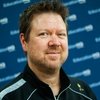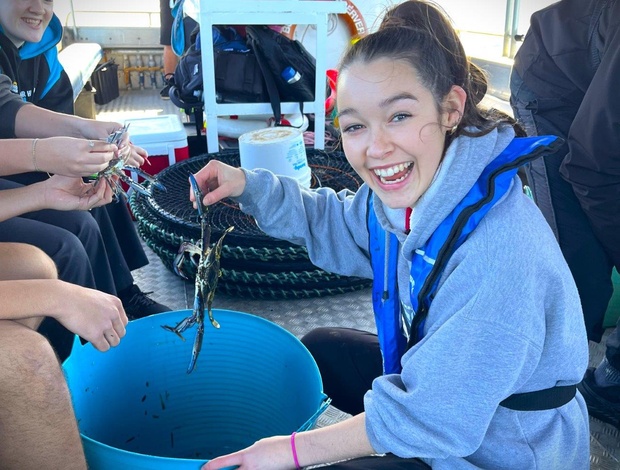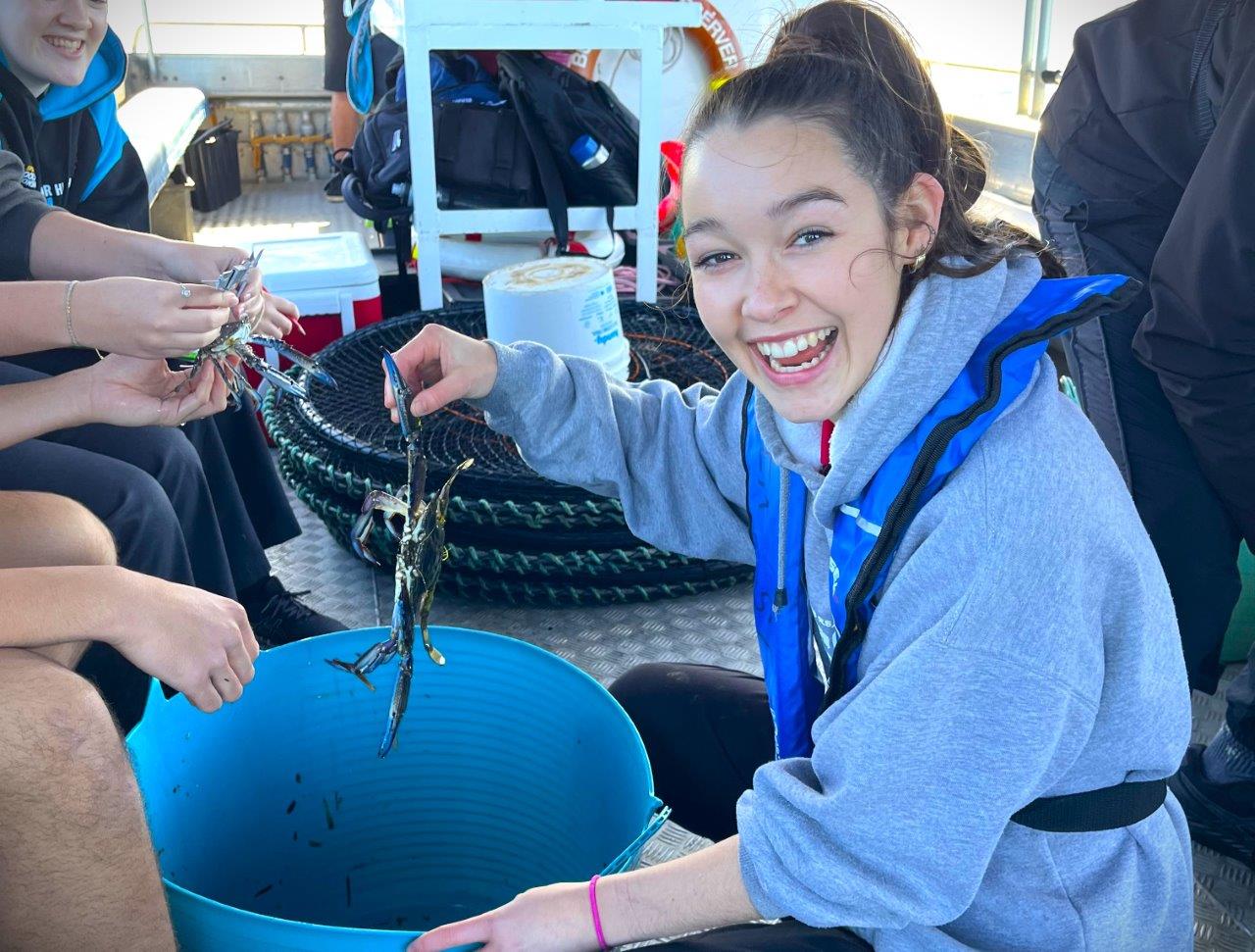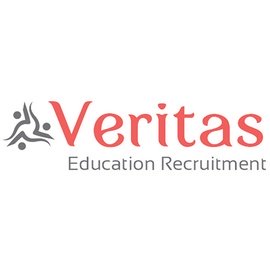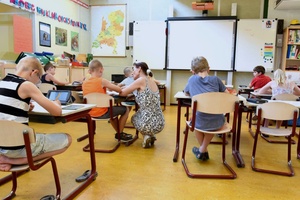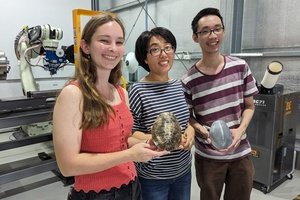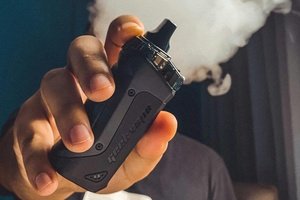Only 15 years in existence, Manea Senior College draws its cohort from more than 30 surrounding schools, including significant numbers from private schools, with some students travelling three hours each day to attend the school.
Last year’s winner for Excellence in teaching and learning (secondary) at the WA Education Awards, and inundated with parents’ enrolment inquiries as far ahead as 2029, the school is blazing an enviable trail of innovation and excellence.
It’s a unique setting, one of only four specialist Year 11 and 12 schools in WA, but the school has capitalised in a remarkably wide range of ways on its pre-tertiary environment.
“What we love here is that people – students and educators – are making a conscious choice to come here, and they want to be here for a range of reasons, so therefore, they tend to buy into what we do,” Rykers says.
“It means that my teachers can actually teach every day, and that my administrators can actually do the strategic things and organisational things that make a difference, as opposed to being in other schools or environments where there are numerous distractions, behavioural etc.
“I’m not saying we don’t have any of that, but at 16, 17 and 18, they’ve got a little bit of an idea of where they’re heading.
“It makes working with these young people, just an amazing experience.”
Rykers has been at the school since 2008, was deputy principal until the end of 2014 and has been principal since.
Prior to that he was a coordinator for education projects in the region, so before a sod of dirt was even turned on the Manea project, he was involved.
“I’ve been able to see it come from nothing and a couple of ideas to then open with 148 students back in 2009,” he says.
The leader explains that a bi-product of having 500 students in a school catering to Years 11 and 12 only, means course offerings are much greater.
“…it means that we have probably a little bit more flexibility, because the increased numbers means increased resources and that means that we can try different things that appeal to those young people,” he says.
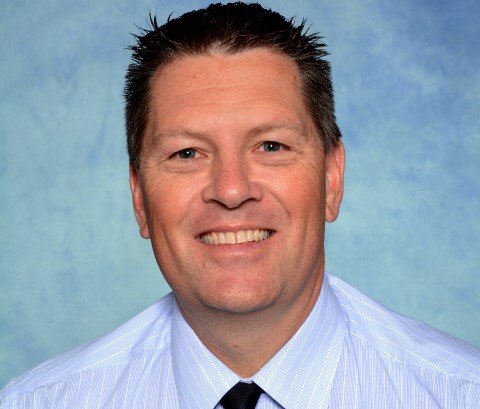
Principal Rod Rykers says his school’s core purpose is to ‘prepare students for life’, and that in order to support young individuals in their transition to the adult world, it is imperative to treat them as young adults.
A big point of difference, Rykers shares, is how young people at the school are treated.
“What I say to all of the students enrolled here is that we trust you, we respect you, and we’re going to treat you more like an employee than a student.
“So we almost say that this is my workplace, so it’s your workplace, and our role is to support you to do your job.
This means everyone – students and staff – are on a first name basis, in an effort to encourage and create those more adult conversations and adult relationships, which Rykers says is really important when students are only at the school for a short period of time.
“And we find that ability, that small thing, actually goes a big way in terms of students feeling, over time, more comfortable in having conversations and talking to our staff,” he says.
The school also has an unwritten policy of there being no out of bounds areas, so students and staff can go pretty much anywhere in the school, without students always having to ask permission.
“I guess it comes back to what we’re trying to do is, where we can, emulate the work-type environments that they’re going to go into the future within the bounds of constraints of a school, but trying to say ‘you know what, we’re not going to treat you like a student, we’re going to put some responsibility back onto you.
“We’re not going to do everything for you, but we’re going to guide you and help you with the view that we want to ensure you have a toolkit.”
Rykers says while ATAR scores and vocational qualifications and graduation are obviously important, he and his staff are more focused on students’ having a set of skills that hopefully they can take with them beyond schooling, so that when they are faced with life’s, and work’s, many challenges, they can have conversations, they can make decisions, they have more independence, responsibility and maturity around what they do.
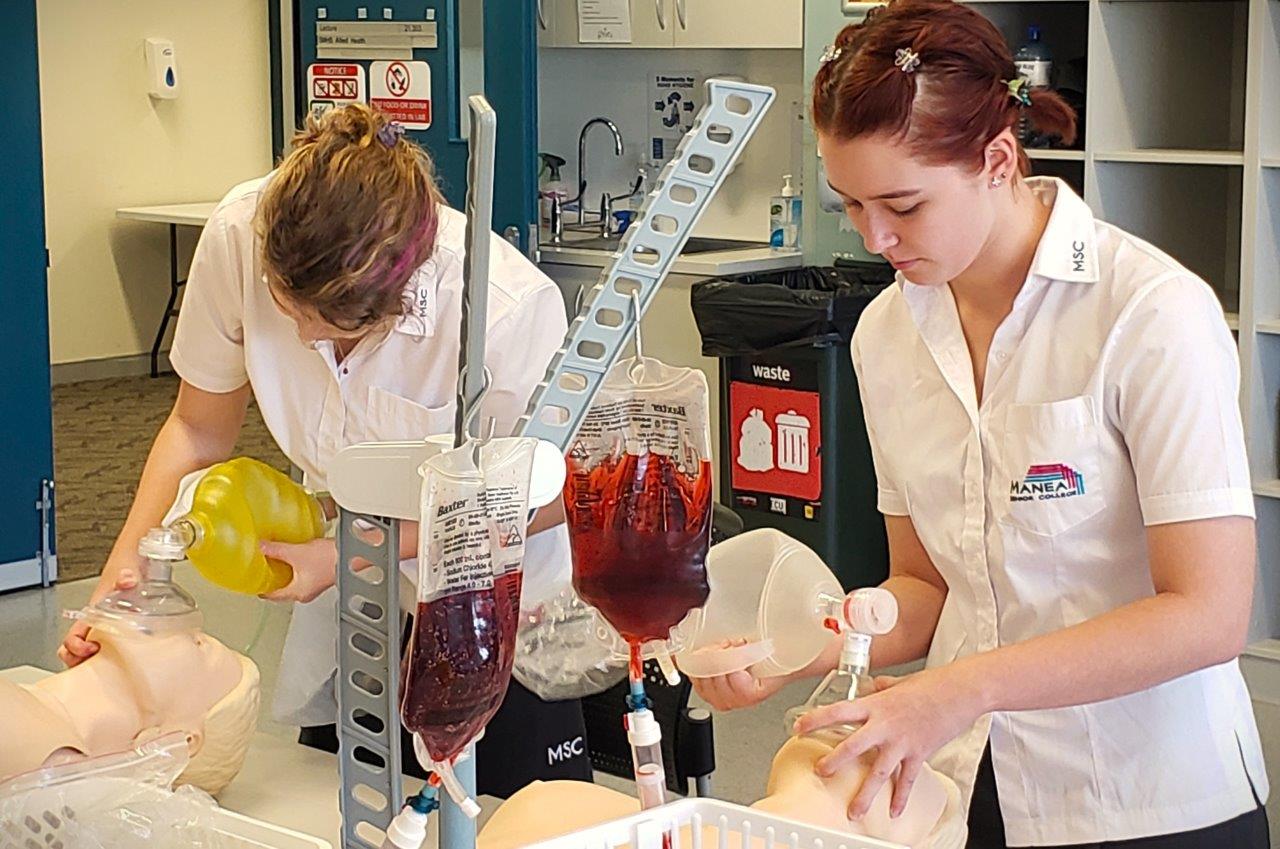
Manea is the only secondary school in WA to offer a health and medical specialist program, which gives students interested in exploring careers in the health and medical fields a head start in their skills and knowledge.
“That’s essentially what we try and do. And that’s probably the ethos I suppose of the college,” he says.
The school has a reputation for providing practical real world learning opportunities and that probably started with the school’s health and medical specialist program, which launched in 2013.
The school itself is named after Dr Ernie Manea, a local GP who was also at one time the Lord Mayor of Bunbury. He set aside a tract of land at that time to be used for education – so after Edith Cowan University (ECU) was built, and then South Regional TAFE college, eventually his vision came to fruition, with the senior college being built in between the two tertiary institutions.
With Manea’s medical background, the Bunbury Regional Hospital and St John of God Hospital less than a kilometre away, and ECU hosting its Rural Clinical School, where medical doctors in their fourth and fifth years undertake their training, it was a great opportunity, Rykers says, for the school to say ‘hey, we all provide health services, we’re in a health precinct, let’s create a health and medical specialist program’.
“Basically, that was something that was rolled out on top of our standard curriculum, which a lot of our programs are.
“So yes, you’ve got your courses to study to get to uni or to graduate, or courses that you want to achieve qualifications in, but what we’ve tried to do over time is identify value-add programs that students can then partake in, but not at the detriment to their courses, where possible.”
Time is set aside in the timetable where students can do that program and others, but it’s done in such a way as to not impact on their maths, English, science, etc.
“We set aside 160 minutes every week for what we call ‘professional learning for students’,” Rykers explains.
“So that’s where we run the health and medical specialist program, that’s where we run a lot of the things that we put in our application this year - everything from volunteering in the community to doing storm-chaser cleanup days, food security programs with Food Bank and Milligan, music clubs, drama clubs and environmental science group, some visual arts work.”
The health and medical program itself sees students linked with universities for various experiences, sometimes certification, shadowing with various medical practices, some practical skills work, basically providing an insight into the industry.
“So some students end up saying, ‘you know what, I don’t want to do this’ – and for us, that’s a positive outcome, that’s what that sort of program does.
“It means that some students can say, ‘actually, no, I’m changing my pathway, or they change and they say, ‘I thought I wanted to do this, but now, actually, I want to go into research now, or I want to go and do this.
“So it’s about trying to give them a bit of an insight because like anyone, unless you experience something, you think you might want to do something, but you’re not really sure.”
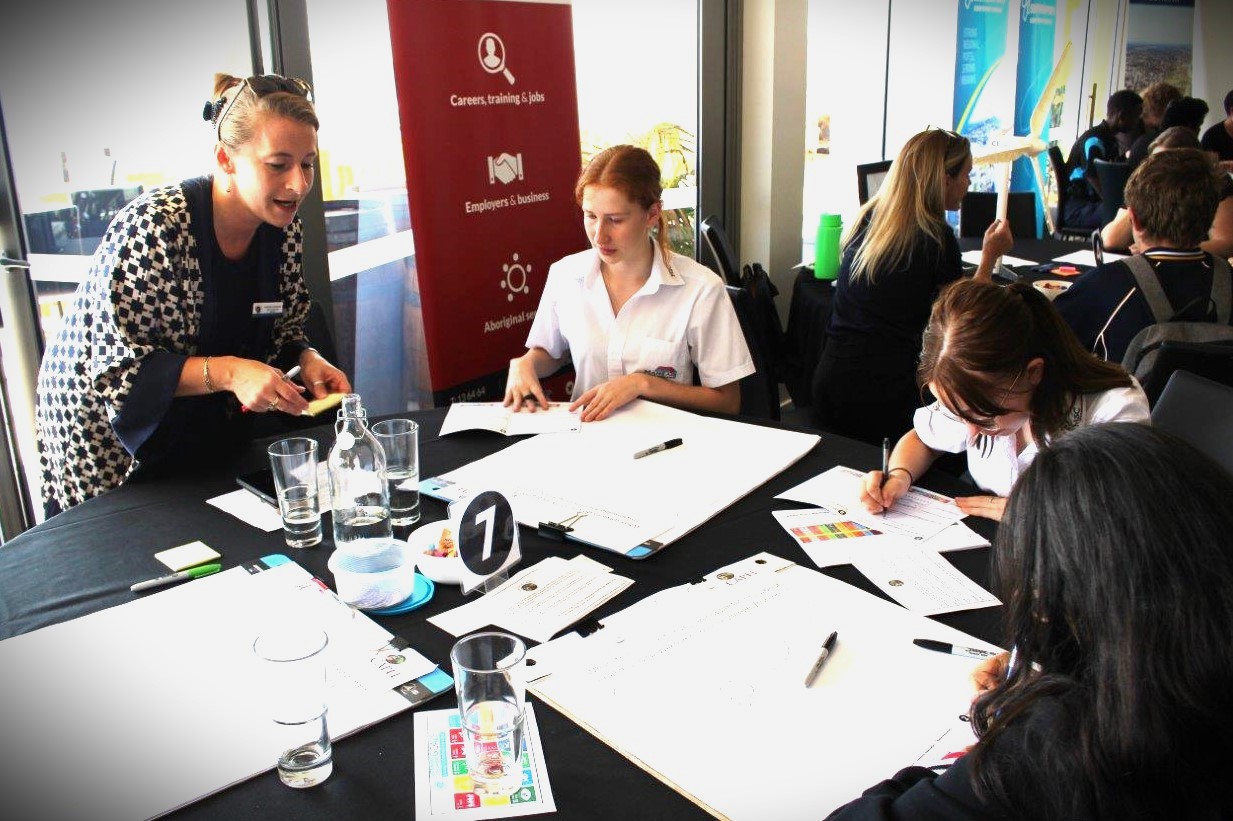
Manea’s facilities perfectly match its young adult environment, meaning the design and ‘feel’ of the college is more akin to a university campus than a school.
The school’s South West Innovation Academy is a new development this year, the brainchild of two staff members at the school, keen to push beyond so-called ‘textbook learning’ and venture into integrating education with the business community.
“What we really love about it, is that it’s actually bringing together the industry community, and a range of schools – so not just Manea, but seven or eight schools, Catholic, private schools and public schools, coming together to listen to industries about the challenges they face.
“Students go away and do work on solutions and problem solving, working through, I guess, organizers and design thinking about how would we go about that? How do you empathize with that person and the issues that they have? And then what sort of solutions could there be? And the students having to come up with those sorts of things.
“So rather than say, ‘pretend that you’ve got a client to do this’, where we can, what we try and say is, ‘let’s link this to a real problem, or a real organisation or a real design – so if we’re going to design something and create something, let’s make sure it gets published, or it gets turned into a shirt, or whatever it might be, but where we can, to try and get that connection.”
A major component of the school’s success undoubtedly can be attributed to its leader, and when asked about some key philosophical priorities in his leadership style, the principal is quick to respond.
“I’m a very affiliative leader, I suppose,” he says.
“And what I mean by that is, I engage in personal conversations with all of my staff to get a sense of what’s happening around the place.
“We have a leadership structure that’s a little bit different from most schools, we don’t have heads of learning area and things like that, we basically position program coordinators in charge of areas … so it’s maybe a flatter structure than what other schools do.”
Ryker makes it a priority to have personal conversations with his staff regularly.
“In fact, with our performance management model that we have here, I have meetings with every single teacher in the organisation twice a year, one-on-one, anywhere from half an hour to an hour, no holds barred.
“So, ‘let’s talk about what’s happening for you as a person in the organisation, what’s working, what’s not working’, to try and get that picture from every angle and get a sense of 'are we heading in the right direction?' 'What are the pressure points?' Those sorts of things."
Ryker says his interpersonal skills, his relationships, optimising communication are probably the keys to his success as a leader.
“With regards to change management, I’m very big on 'why are we doing it?' If we’re going to do this, all of the staff don’t have to agree with the change, but they need to know why we’re doing it.
“So I’m very mindful that when we’re going about things, we do our research, we look into it, we listen – but at the end of the day, we make decisions on ‘this is where the college needs to go, and this is why we’re following this direction’. And that’s how we get people on board.
As with all school leaders, one of Ryker’s eyes is always on the future.
“I think moving forward, this award is great, but we’re probably only partway through our journey, we’ve got a lot of other things that we want to continue to do and develop skills within our students.
“We’re moving down the line of every student having a learner portfolio online, where they store stories of their experiences, so, for example, when they’re applying for jobs, they’ve got things that they can draw on to say, ‘Hey, I’ve got this, I’ve got this, I’ve got this'.
“So we’ve still got a lot of things that we want to do. What the award says to me is that we’re on the right path.”
